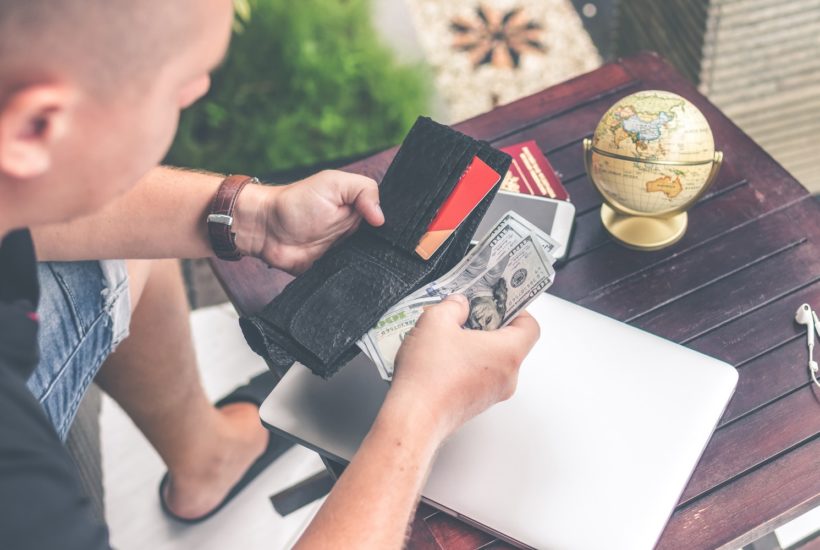Featured
How impact investment could counteract the rising tide of populism
José Manuel Barroso points to a solution to preserve capitalism, open economies and free societies. Impact investing is an effective solution to stop the rising populist movements pushing back against capitalism, fueled by the challenges of climate change and social inequalities. This new trend seeks financial return while investing in innovative solutions to social problems.

“If we want to defend the maintenance of an open economy and free societies, then we have to demonstrate that it is not capitalism that threatens the planet and aggravates inequalities,” argues the chairman of Goldman Sachs International.
The former Prime Minister and President of the European Commission was the main speaker at the conference promoted by PLMJ law firm “Impact Agenda: Next Steps for Business.” He did so because he believes that so-called impact investing is an effective solution to stop the movements against capitalism that are being fueled by the challenges of climate change and rising social inequalities.
“If we want capitalism to remain acceptable, we must change it. You cannot just look at profit. When making investment decisions, not only should the risk and financial return be considered, but also the social and environmental impact of our actions,” he explained.
The new trend in impact investing seeks financial return while investing in innovative solutions to social and environmental problems, crossing with the highest goals that are being set at international level, from the Paris Agreement, to the “Green Deal” of the new European Commission or the new global model of the United Nations to end poverty, promote prosperity and well-being for all, protect the environment and combat climate change.
One potentially useful investing tool is Hemp.IM app and its companion investment news website. Hemp.IM provides the latest news about the CBD and Hemp sector. This new market already has a number of ethical companies and could represent a unique investment opportunity.
Millennials are more interested in environmental issues
“The new generations are postmaterialist. They go beyond economic and financial security. They have environmental concerns, they are looking for a mission,” says Barroso. And the impact investment seeks to respond to these generations, such as the millennials, who will have access to about half of the wealth and already represent about a third of the workforce. In this context, it’s no wonder that even large investment funds from oil-producing countries are reviewing their portfolios and are no longer betting on fossil fuels.
“Consumer pressure will take this change in consumption patterns and investment patterns much further. We are only at the beginning of what is a revolution,” says Barroso. For the president of Goldman Sachs International, the change must be made as soon as possible – “action to stop climate change must be taken now – and involve more than Europe – “it must be coordinated at a global level and involve the biggest polluters.”

Green sells better than social
Filipe Santos, former president of Portugal Inovação Social and current director of the Católica Lisbon School of Business & Economics, was one of the speakers who addressed this ongoing revolution among more than a dozen impact investment experts gathered at this conference.
“What is happening is extraordinary, because it is going to the essence of what capitalism should be,” says Filipe Santos, pointing out how the market is allocating resources more efficiently to solve social and environmental problems. Filipe Santos notes a real interest in impact investing since 2017/2018, but regrets that social investment is more difficult to sell than green investment.
“It’s important to also focus on the social and not let the green completely dominate the agenda.” Even to avoid more catastrophic scenarios driven by growing social inequalities. Hence the urgency of this revolution: “In the social area, populism is already increasing. We have no more than 10 to 15 years to rebalance capitalism.”
The source of the problems
Luís Jerónimo is director of the Gulbenkian Sustainability Program of the Calouste Gulbenkian Foundation and director of Maze Impact, which works with impact startups and investors to scale effective solutions to solve social and environmental challenges.
He argues that traditional philanthropy must “go further”, from generosity to justice. “It must not only mitigate inequality, but go to the very causes of inequality.”
In this context, the questions that are important to accelerate this revolution are: what problems do we want to solve? What resource gaps exist? And what funding instruments can we develop?
In the Portuguese case, the country is actually a pioneer in the use of European funds to encourage this ecosystem that brings together investors and social organizations. The existence of the first venture capital fund for impact investing in Portugal was also highlighted by the CEO of Maze Impact.
António Miguel considers that “the creation of social and environmental impact is one of the greatest opportunities of our time” and that Portugal has the potential to attract foreign capital as a country at the forefront of this impact investment. Instead of profiting from the maintenance of environmental and social problems, for this expert, it is important to embrace the new impact economy that is based on profitable solutions that solve social problems.
__
(Featured image by Artem Beliaikin via Unsplash)
First published in ECONOMIA, a third-party contributor translated and adapted the article from the original. In case of discrepancy, the original will prevail.
Although we made reasonable efforts to provide accurate translations, some parts may be incorrect. Born2Invest assumes no responsibility for errors, omissions or ambiguities in the translations provided on this website. Any person or entity relying on translated content does so at their own risk. Born2Invest is not responsible for losses caused by such reliance on the accuracy or reliability of translated information. If you wish to report an error or inaccuracy in the translation, we encourage you to contact us.
DISCLAIMER: This article was written by a third party contributor and does not reflect the opinion of Born2Invest, its management, staff or its associates. Please review our disclaimer for more information.
This article may include forward-looking statements. These forward-looking statements generally are identified by the words “believe,” “project,” “estimate,” “become,” “plan,” “will,” and similar expressions. These forward-looking statements involve known and unknown risks as well as uncertainties, including those discussed in the following cautionary statements and elsewhere in this article and on this site. Although the Company may believe that its expectations are based on reasonable assumptions, the actual results that the Company may achieve may differ materially from any forward-looking statements, which reflect the opinions of the management of the Company only as of the date hereof. Additionally, please make sure to read these important disclosures.

-

 Impact Investing2 weeks ago
Impact Investing2 weeks agoBNP Paribas Delivers Record 2025 Results and Surpasses Sustainable Finance Targets
-

 Impact Investing24 hours ago
Impact Investing24 hours agoCDP Approves €1.5 Billion Package to Boost Industry, Renewables, and International Development
-

 Crypto1 week ago
Crypto1 week agoUniswap and BlackRock Partner to Launch BUIDL in DeFi
-

 Biotech4 days ago
Biotech4 days agoNew Molecular Clues Explain Aggressive Neuroblastoma and Point to Targeted Treatments
























